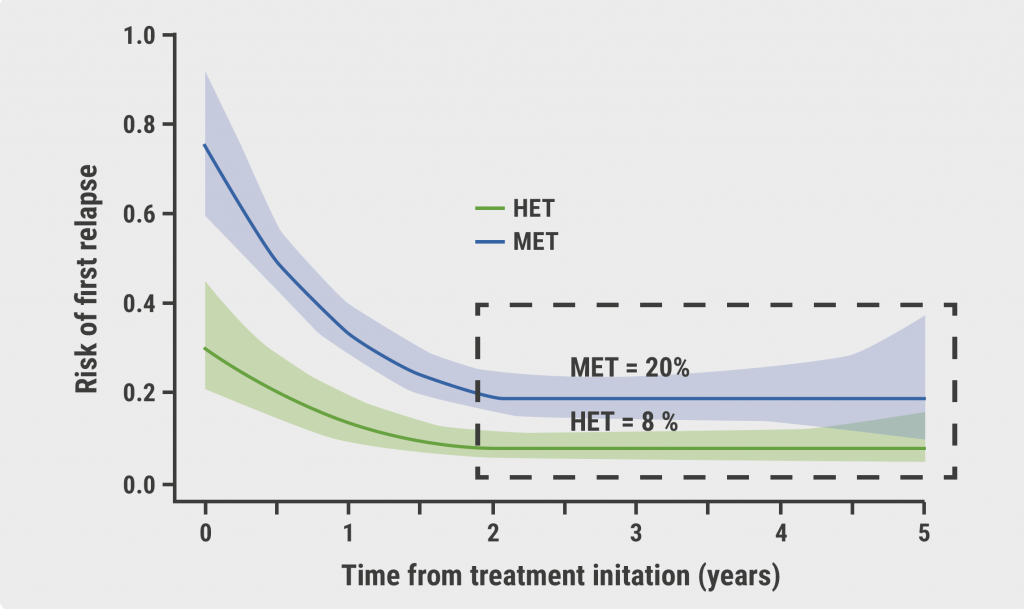The TRIUMPHANT-MS trial compared the efficacy of twice-daily oral methylphenidate, modafinil, and amantadine against each other and placebo. Eligible patients had MS-related fatigue with a Modified Fatigue Impact Scale (MFIS) score of >33. EDSS score at the time of screening ranged from 0.0 to 7.0. A total of 141 adult patients received 1 of 4 treatment sequences:
- amantadine, placebo, modafinil, methylphenidate;
- placebo, methylphenidate, amantadine, modafinil;
- modafinil, amantadine, methylphenidate, placebo; or
- methylphenidate, modafinil, placebo, amantadine.
Each medication was titrated over 4 weeks to the participants' highest tolerated dose or pre-defined highest dose. Each intervention was given up to 6 weeks, with a 2-week washout period between treatments. The primary outcome measure was the MFIS score in week 5, when the highest tolerated dose was used.
The estimated mean value of the MFIS total score at baseline was 51.3. In week 5 of treatment, the MFIS total score was 41.2 with amantadine, 39.0 with modafinil, 38.7 with methylphenidate, and 40.7 with placebo (P=0.20 for overall medication effect). In the subgroup of patients with a higher baseline daytime sleepiness (Epworth Sleepiness Scale) score, both modafinil and methylphenidate were superior to placebo in improving MFIS score (-4.1 for both interventions).
In the amantadine, modafinil, and methylphenidate groups, 38.6%, 40.0% and 39.5% of participants reported adverse events, respectively, versus 30.6% in the placebo group. The authors concluded that these agents should not be used indiscriminately for the treatment of MS-related fatigue.
- Nourbakhsh B, et al. Randomized Trial of Amantadine, Modafinil and, Methylphenidate for Multiple Sclerosis Fatigue. MSVirtual 2020, Abstract PS13.03.
Posted on
Previous Article
« COVID-19 and Cancer Next Article
Cardiovascular risk factors may contribute to brain atrophy in MS patients »
« COVID-19 and Cancer Next Article
Cardiovascular risk factors may contribute to brain atrophy in MS patients »
Table of Contents: MS Virtual 2020
Featured articles
COVID-19 and MS
Biomarkers
Treatment Strategies and Results
Management of progressive MS with approved DMT
Novel Treatment Directions
Neuromyelitis Optica Spectrum Disorders
Miscellaneous Topics
Related Articles
December 16, 2020
Real-world efficacy of ocrelizumab in MS patients
November 8, 2019
EAN guideline on palliative care

December 4, 2023
Prioritising high efficacy therapies in children with MS
© 2024 Medicom Medical Publishers. All rights reserved. Terms and Conditions | Privacy Policy
HEAD OFFICE
Laarderhoogtweg 25
1101 EB Amsterdam
The Netherlands
T: +31 85 4012 560
E: publishers@medicom-publishers.com

